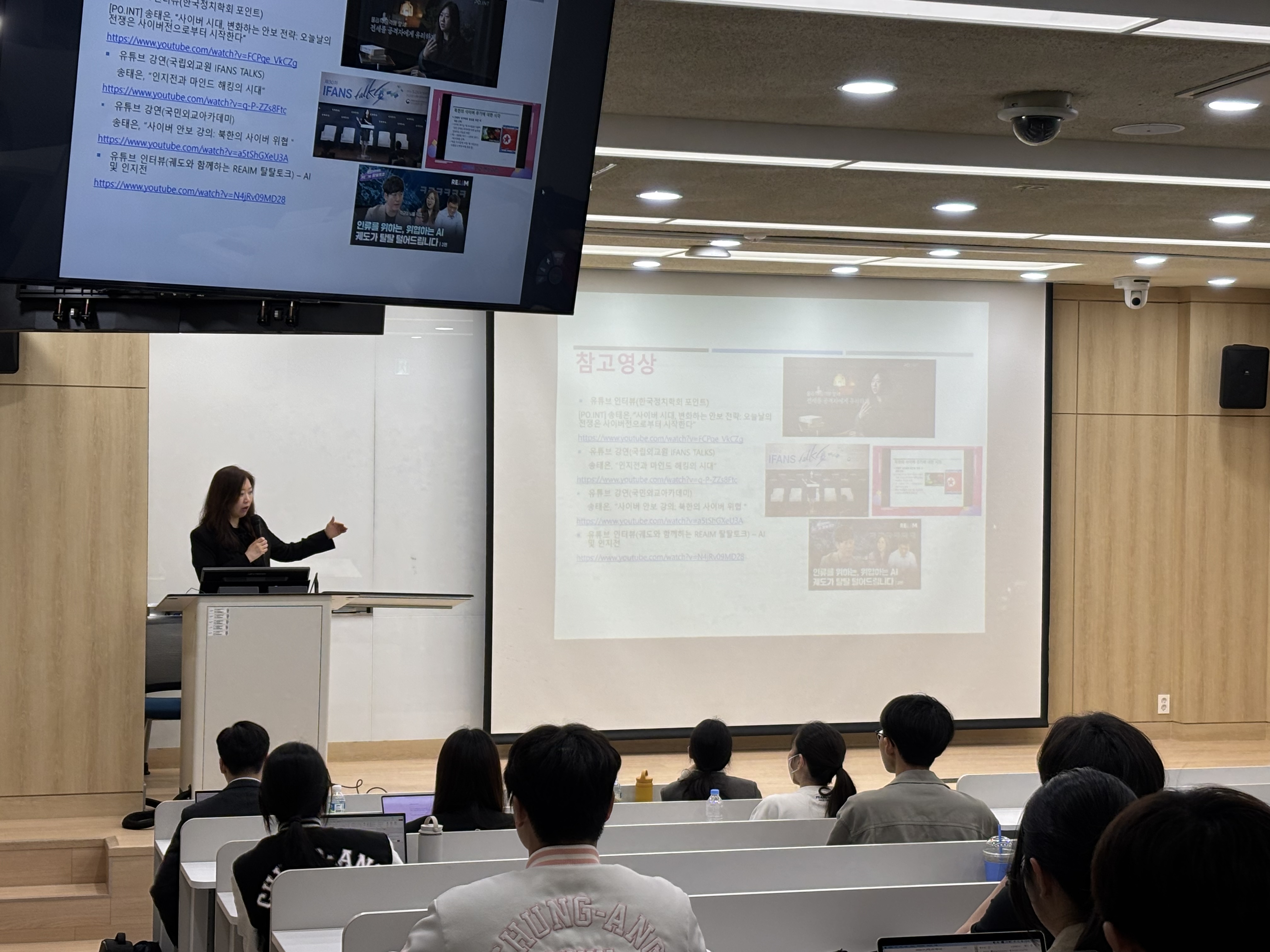Lecture
Cyber and Cognitive Warfare in the Digital Age

In the first lecture of the 2025 FNF x Hanmiyeon lecture series, Assistant Professor Tae-Eun Song from Korea National Diplomatic Academy unpacked the challenges Korea faces in responding to cyber and cognitive warfare.
© HanmiyeonWhat does warfare look like in 2025? For students gathered at Chung-Ang University in Seoul, the answer was clear: it’s no longer just tanks and missiles, but also algorithms, disinformation, and digital sabotage.
In the first lecture of the 2025 FNF x Hanmiyeon lecture series, Assistant Professor Tae-Eun Song from Korea National Diplomatic Academy unpacked the challenges Korea faces in responding to cyber and cognitive warfare. The lecture, themed “Cyber and Cognitive Warfare in the Digital Age,” took place on April 10, 2025, focused on how invisible battles, waged through disinformation, digital sabotage, and psychological manipulation, are reshaping the very foundations of international diplomacy and defense.
Prof. Song, an expert in cybersecurity, guided the audience through how cyberattacks have become a central tactic in modern warfare, used to disorient populations, paralyze infrastructure, and weaken a state's capacity to respond.
She examined the Russia–Ukraine war as a case in point, where cyber operations were used as a prelude to conventional attacks. As Microsoft’s Tom Burt observed, the Russian invasion effectively began not on February 24, but the day before on February 23, with a sweeping cyber assault that targeted over 300 Ukrainian systems. This shift underscores how the frontlines of modern war have expanded into digital and psychological realms, where influence, disruption, and manipulation can precede physical force.

Her presentation didn’t stop at cyber weaponry. She introduced cognitive warfare, the strategic manipulation of perception through orchestrated disinformation campaigns, social division, and psychological pressure. Ranging from phishing and fake news to deepfakes and AI-generated propaganda, she warned that today’s adversaries target not only infrastructure, but the human mind.
South Korea, she argued, stands at a crossroads. Despite its high global ranking in digital infrastructure, it suffers from critical gaps in cybersecurity resources, organizational capacity, and cross-sector coordination. As North Korea and other authoritarian states expand their offensive cyber capabilities, Korea must develop agile, cross-ministerial strategies to detect and defend against hybrid threats.
During the discussion, students raised questions that reflected both domestic and global dimensions of cybersecurity. Topics ranged from the tension between digital sovereignty and international cooperation, to the growing vulnerabilities of private companies and supply chains. Several students highlighted the importance of public awareness, noting that phishing remains one of the most common forms of cyberattacks. Prof. Song also pointed out the expanding relevance of development cooperation in the digital age, underscoring the role of cyber resilience in global development efforts.
*Lin Choi is the Program & Communications Officer of the Friedrich Naumann Foundation for Freedom Korea office.
